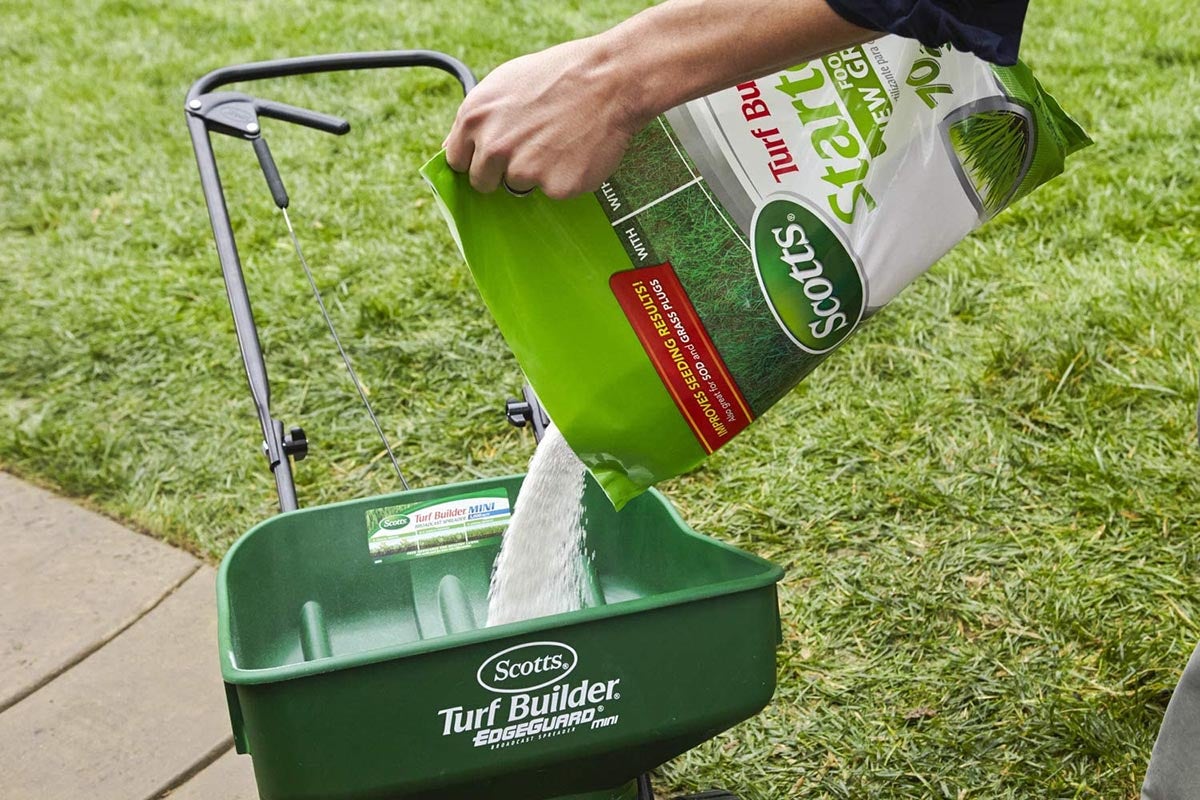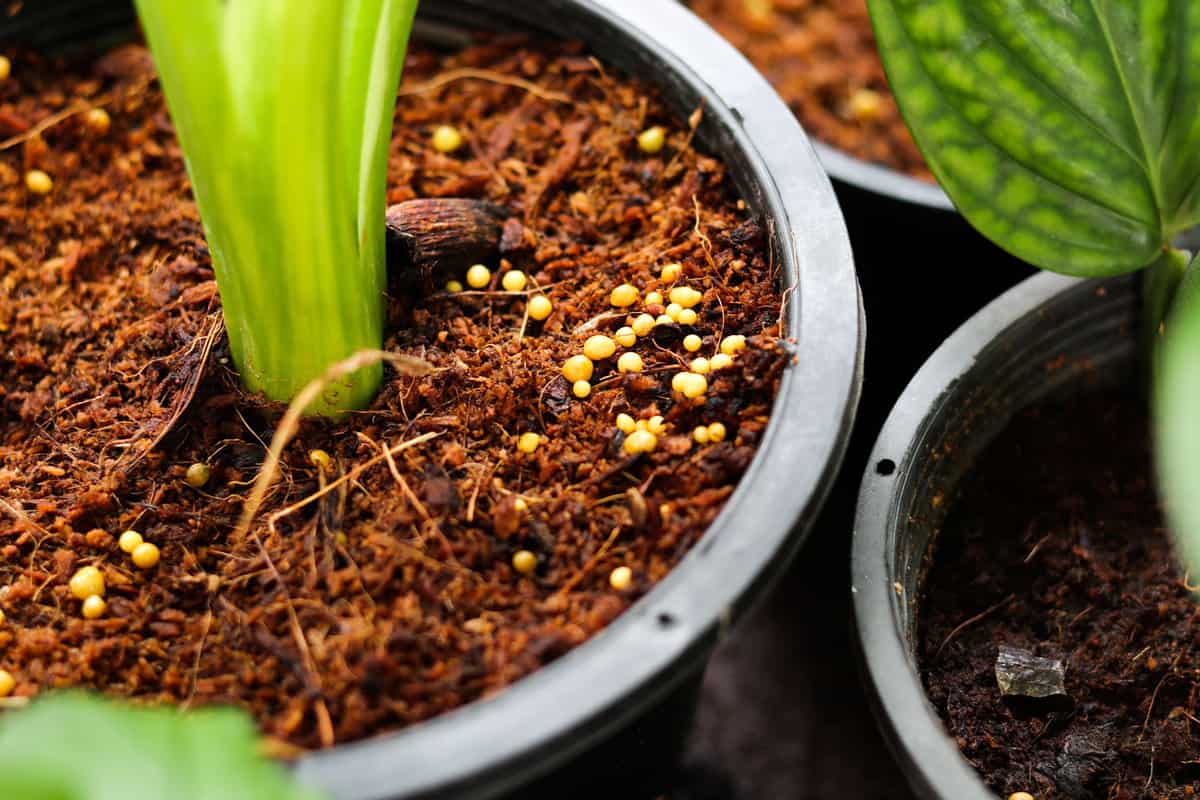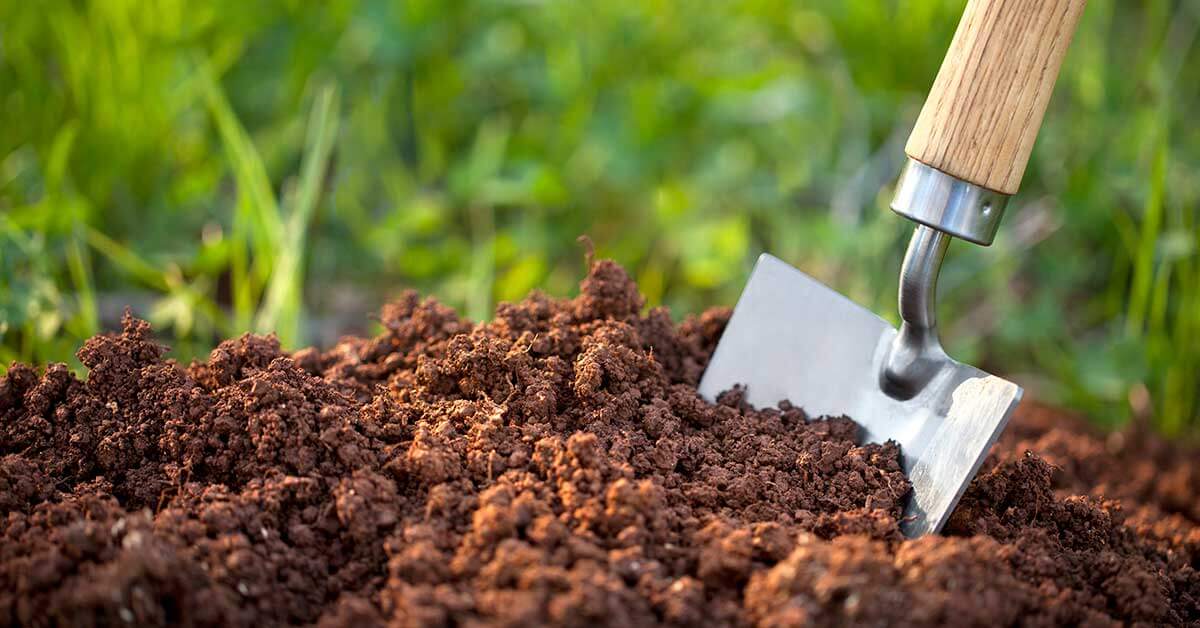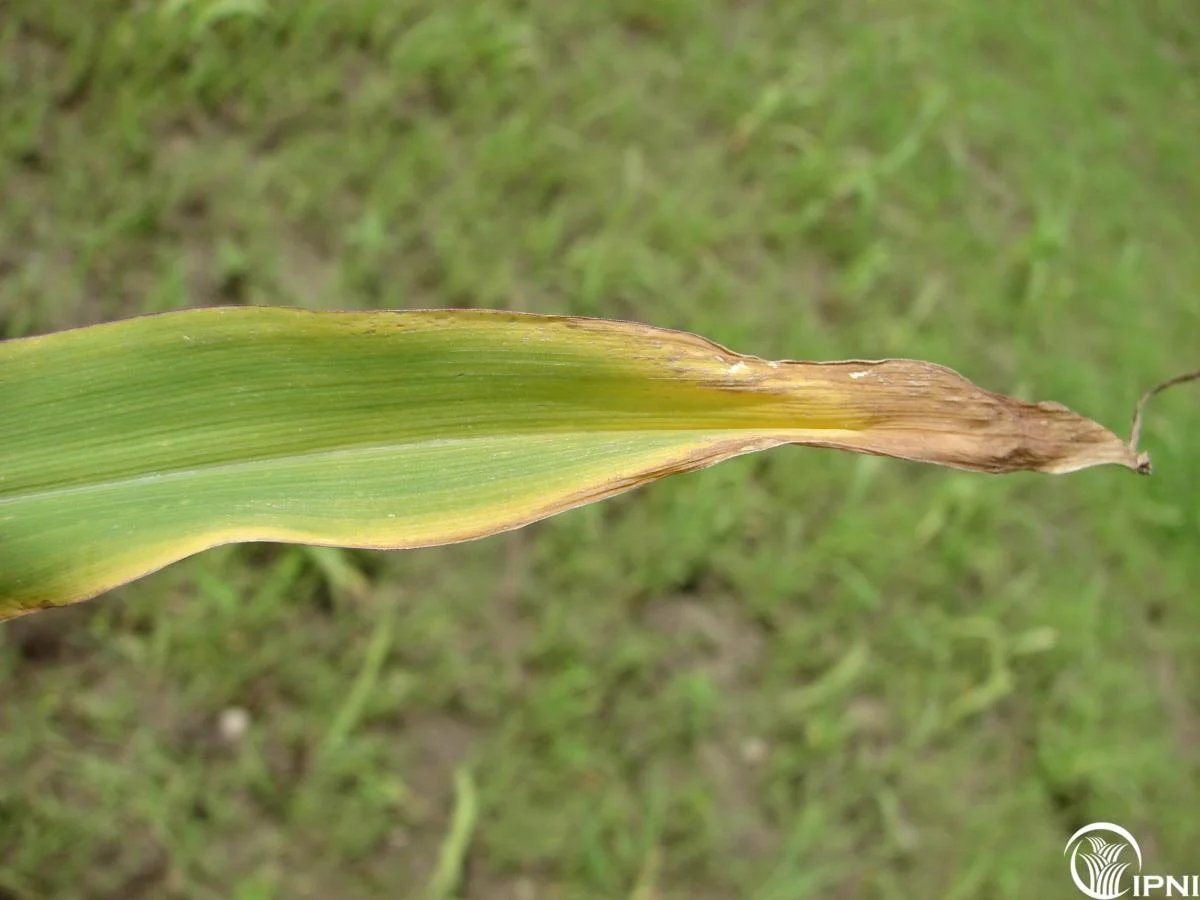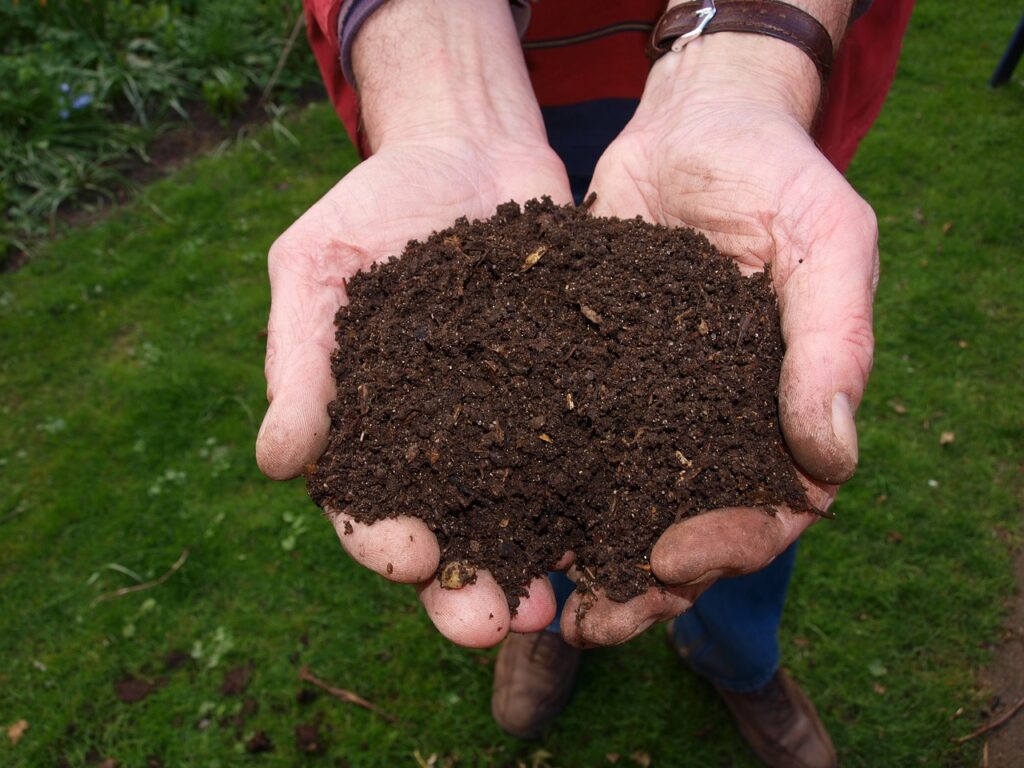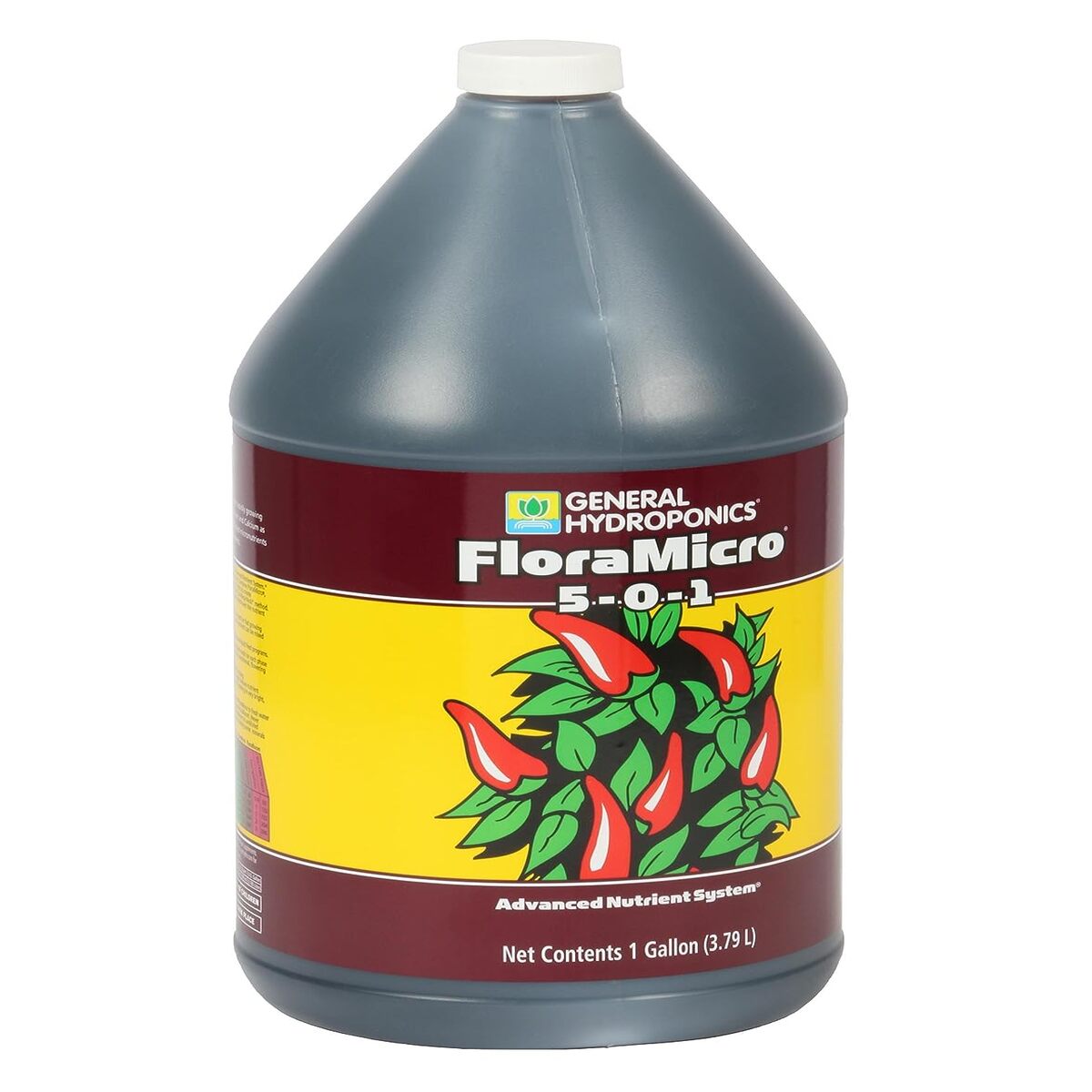Home>Gardening Tips and Tricks>When To Use Starter Fertilizer
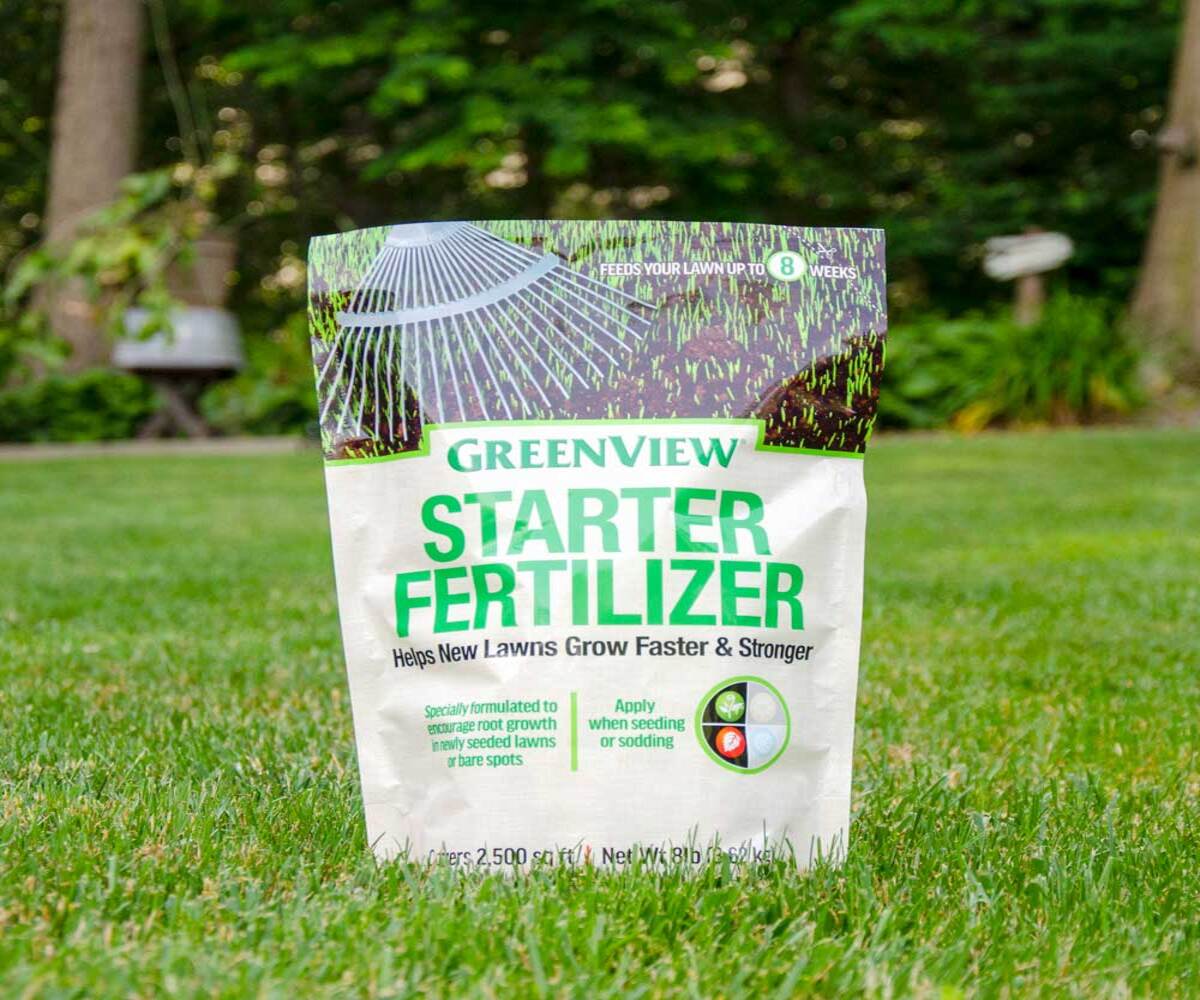

Gardening Tips and Tricks
When To Use Starter Fertilizer
Modified: January 22, 2024
Maximize your crop yield with the right timing of starter fertilizer application. Learn when to use starter fertilizer for optimal results.
(Many of the links in this article redirect to a specific reviewed product. Your purchase of these products through affiliate links helps to generate commission for Chicagolandgardening.com, at no extra cost. Learn more)
Table of Contents
Introduction
Welcome to the world of gardening and agriculture! Whether you’re a seasoned farmer or just starting out with a small backyard garden, maximizing yield is undoubtedly a top priority for you. One of the key ways to achieve higher crop yields is through the use of starter fertilizer.
Starter fertilizer, as the name suggests, is a type of fertilizer specifically formulated to aid in the early stages of plant growth. It provides essential nutrients to young plants, giving them the boost they need to establish strong roots, develop healthy shoots, and ultimately thrive throughout the growing season.
In this article, we will explore the benefits of using starter fertilizer, discuss the factors to consider when choosing the right formulation, and provide insights on when to incorporate it into your gardening or farming practices. By understanding the importance and proper usage of starter fertilizer, you can optimize your crop yields and achieve more bountiful harvests.
So, let’s dive in and discover how starter fertilizer can play a crucial role in enhancing the productivity of your plants.
Understanding Starter Fertilizer
Before we delve into the benefits and usage of starter fertilizer, let’s first gain a clear understanding of what it actually is. Starter fertilizer is a type of fertilizer that is specifically formulated to provide essential nutrients to young plants during their early growth stages. It is typically applied to the soil or used as a seed treatment to ensure that the developing plants have access to the nutrients they need to establish strong root systems and promote vigorous growth.
Starter fertilizers are usually high in phosphorus, which is essential for root development, energy transfer, and overall plant growth. They may also contain nitrogen, potassium, and other micronutrients, depending on the specific formulation and the requirements of the crops being grown.
The high phosphorus content in starter fertilizer is crucial because young plants have a higher demand for this nutrient compared to more mature plants. This is because phosphorus plays a vital role in stimulating root development, providing energy for cellular processes, and aiding in the synthesis of DNA and RNA. By providing a readily available source of phosphorus, starter fertilizer ensures that young plants have the necessary resources to establish strong root systems, absorb water and nutrients from the soil, and withstand environmental stressors.
Additionally, starter fertilizers are often designed to have a higher nutrient solubility, meaning they can be more easily and quickly absorbed by the young plants. This is especially important in the early stages of growth when the root systems are still developing and may not be able to efficiently extract nutrients from the soil.
Now that we have a clear understanding of what starter fertilizer is and why it is important, let’s explore the numerous benefits it can provide for your plants.
Benefits of Using Starter Fertilizer
Using starter fertilizer offers a range of benefits that can significantly impact the growth and productivity of your plants. Here are some key advantages of incorporating starter fertilizer into your gardening or farming practices:
- Promotes early root development: Starter fertilizer contains high levels of phosphorus, which is essential for root growth. By providing a readily available source of phosphorus to young plants, starter fertilizer stimulates root development, allowing them to establish strong and extensive root systems. This, in turn, enhances nutrient absorption and gives the plants a solid foundation for growth.
- Improves plant vigor: The nutrient-rich composition of starter fertilizer helps to boost overall plant vigor. By providing a balanced mix of essential nutrients, such as nitrogen, phosphorus, and potassium, starter fertilizer ensures that young plants have the resources they need to develop healthy leaves, stems, and branches. This leads to stronger, more robust plants that are better equipped to withstand environmental stresses, disease, and pests.
- Enhances crop uniformity: When using starter fertilizer, you can expect to see improved crop uniformity. This is particularly important in agricultural settings where uniform growth and maturity are essential for efficient harvesting. By providing the necessary nutrients in the early stages, starter fertilizer promotes consistent growth across all plants, resulting in a more even crop with fewer variations in size and quality.
- Increases nutrient uptake: Starter fertilizer not only provides essential nutrients directly to plants but also improves the soil’s nutrient availability. The increased nutrient solubility of starter fertilizers ensures that the nutrients are readily absorbable by the plants, even if the soil conditions are less than optimal. This maximizes the plants’ ability to take up nutrients from the soil, further enhancing their growth and development.
- Shortens time to maturity: By kickstarting plant growth and development, starter fertilizer can help shorten the time it takes for crops to reach maturity. The improved nutrient availability and root development facilitated by the fertilizer allow plants to transition from the early growth stages to the reproductive stage more efficiently. This can be especially beneficial in regions with shorter growing seasons or when planting crops with longer maturity periods.
Overall, the use of starter fertilizer offers numerous advantages that can lead to healthier plants, increased yields, and more productive harvests. However, it’s important to consider several factors before implementing a starter fertilizer regimen, which we will explore in the next section.
Factors to Consider
Before incorporating starter fertilizer into your gardening or farming practices, it’s important to consider several factors to ensure optimal results. Here are some key factors to keep in mind:
- Plant type: Different plants have varying nutrient requirements. Consider the specific nutrient needs of the plants you are growing when selecting a starter fertilizer. Some plants may require higher levels of phosphorus, while others may benefit from a balanced ratio of nutrients. Be sure to choose a starter fertilizer that aligns with the nutritional requirements of your plants.
- Soil conditions: Assessing the soil conditions in your garden or field is crucial for effective fertilizer application. Conduct a soil test to determine the nutrient levels, pH level, and other relevant factors. This will help you understand whether your soil is deficient in any specific nutrients and guide you in selecting a starter fertilizer that addresses those deficiencies.
- Environmental factors: Consider the climate and environmental conditions in your region. Environmental factors such as temperature, rainfall, and sunlight can impact nutrient availability and plant growth. Choose a starter fertilizer that can withstand and adapt to the environmental conditions in your area.
- Application method: Decide on the most suitable application method for your specific needs. Starter fertilizers can be applied directly to the soil, incorporated into the planting hole, or used as a seed treatment. Each method has its advantages and considerations, so choose the application method that aligns with your cultivation practices.
- Timing: Timing is crucial when applying starter fertilizer. It should be applied at the right time to maximize its benefits. Generally, starter fertilizer is applied during the planting stage or shortly after germination. Refer to the specific recommendations for your crop and follow the guidelines provided for optimal timing.
By taking these factors into consideration, you can make informed decisions about the selection and application of starter fertilizer, ensuring that it aligns with the needs of your plants and the conditions of your growing environment.
When to Use Starter Fertilizer
While starter fertilizer can provide significant benefits to young plants, it is important to determine the appropriate timing for its application. Here are some key points to consider when deciding when to use starter fertilizer:
- Planting stage: Starter fertilizer is typically applied during the planting stage or shortly after germination. This is when the young plants are most in need of essential nutrients for root development and early growth. Applying starter fertilizer at this stage ensures that the plants have access to the necessary nutrients right from the beginning, setting them up for healthy growth.
- Poor soil conditions: If your soil is nutrient-deficient or of poor quality, using starter fertilizer can be highly beneficial. It helps compensate for any nutrient deficiencies and provides a boost of essential nutrients to the young plants. By utilizing starter fertilizer, you can promote healthy growth and overcome the limitations posed by poor soil conditions.
- Transplants and seedlings: When transplanting seedlings or starting with young plants, incorporating starter fertilizer can aid in their successful establishment. Transplants and seedlings often face some degree of shock when uprooted or transplanted, and the application of starter fertilizer can help mitigate this shock by providing immediate access to essential nutrients, allowing the plants to recover and establish themselves in the new environment.
- Slow-release formulations: If you choose to use a slow-release starter fertilizer, it can be applied at an earlier stage, even several weeks before planting. The slow-release properties of these formulations ensure a slow and steady release of nutrients over an extended period, providing a continuous source of nutrition for the growing plants.
- Crops with high nutrient demand: Some crops have higher nutrient demands, especially during the early growth stages. Examples include corn, tomatoes, and brassicas. Using starter fertilizer for these high-demand crops can help meet their nutritional needs and promote healthy growth, ultimately leading to better yields.
It’s important to note that while starter fertilizer can be highly beneficial, it should not be used as a substitute for proper soil preparation and overall nutrient management. It is best used as a supplement to a comprehensive fertilization program tailored to the specific needs of your plants and soil conditions.
By considering these factors and understanding the specific requirements of your plants, you can determine the optimal timing for using starter fertilizer to maximize its benefits and contribute to the overall success of your gardening or farming endeavors.
Conclusion
Incorporating starter fertilizer into your gardening or farming practices can have a significant impact on the growth, development, and overall productivity of your plants. By providing essential nutrients, especially phosphorus, in the early stages of plant growth, starter fertilizer promotes strong root development, improves plant vigor, enhances crop uniformity, increases nutrient uptake, and shortens time to maturity.
However, before using starter fertilizer, it’s important to consider factors such as the specific nutrient requirements of your plants, soil conditions, environmental factors, application methods, and timing. Understanding these factors will help you make informed decisions and ensure that the starter fertilizer aligns with the needs of your plants and the conditions of your growing environment.
Remember, starter fertilizer should be used as a supplement to a comprehensive fertilization program that includes proper soil preparation and nutrient management. It is not a standalone solution but rather a valuable tool to enhance plant growth and maximize yields.
By implementing starter fertilizer appropriately and at the right time, you can provide your plants with a strong foundation for growth and increase their resilience to environmental stressors. With healthier and more productive plants, you are bound to enjoy more bountiful harvests and a successful gardening or farming experience.
So, why wait? Start exploring the benefits of starter fertilizer and maximize the yield of your crops today!
